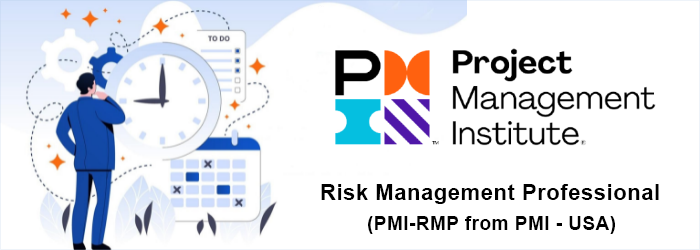

With this comprehensive RMP course, you will ace your RMP certification on the first go...
Project managers who are involved in recognising employees who provide expertise in the specific field of assessing and identifying project risks, as well as formulating plans to minimise threats and capitalise on opportunities, should pursue PMI-RMP® Certification.
The PMI-RMP will authenticate your particular skills and help you stand out to employers, stakeholders, and peers if you're ready for more recognition.
If you have advanced knowledge and expertise in risk management, or if you are a project manager focused on project risk management, including for large projects. Get ready to pass the RMP® Exam on your first try.
The PMI-RMP® is an ideal choice for you if you have advanced knowledge and expertise in risk management, or if you are a project manager focused on project risk management, including for large projects and/or complex contexts.
This PMI-RMP® Certification training is specially designed for:
Prerequisites for obtaining the PMI-RMP® Certification
Or
Topics:
Topics:
Topics:
Topics:
Topics:
Topics:
Topics:
Topics:
Topics: